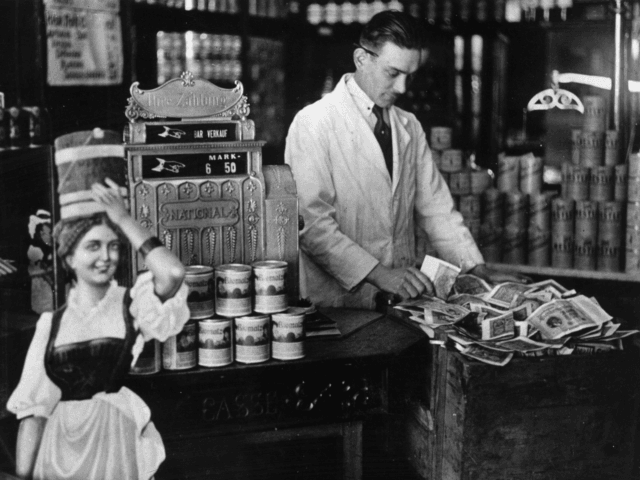Germany is experiencing the highest level of inflation since the country was reunified in 1990 after the fall of the Berlin Wall and economic growth projections have been cut in half amid the ongoing war in Ukraine.
On Thursday, Germany’s federal statistics agency Destatis revealed that inflation has risen by 7.3 per cent over this time last year, up from 5.1 per cent in February.
“Since Russia’s attack on Ukraine, the prices of natural gas and mineral oil products have markedly increased again and have had a considerable impact on the high rate of inflation,” the office said according to public broadcaster Deutsche Welle.
The government’s panel of independent economic advisors have also slashed the economic growth projections, predicting that Germany’s gross domestic product (GDP) will only grow by 1.8 per cent, compared to the 4.6 per cent prediction from the same panel in November.
“We were already having a bad time thanks to the omicron wave and now things are even more bleak,” Monika Schnitzer of the German Council of Economic Experts said.
In its report the economic panel added: “The high dependence on Russian energy supplies entails a considerable risk of lower economic output and even a recession with significantly higher inflation rates.”
Therefore they called for Germany to immediately make moves to end its dependency on Russian gas and for the government to bolster energy security through increased investments in green energy and to seek other countries to partner with for importing energy.
Germany has agreed in principle to a gas deal with the Islamic kingdom of Qatar, however, because of a lack of infrastructure at its seaports and no pipeline connecting the two countries, it is unlikely that any significant amount of gas shipments will be coming to Germany before 2026.
Germany’s Addiction to Russian Gas Sees Energy Prices Double in Februaryhttps://t.co/wgJYtWy12V
— Breitbart London (@BreitbartLondon) March 29, 2022
In response to the growing energy crisis in Europe, the German government warned this week that emergency measures may soon need to be put in place, raising speculation that gas rationing could be around the corner for the economic powerhouse of Europe.
On Thursday, business leaders in the country warned that rationing of energy could have disastrous impacts on the economy, particularly for complex industries such as chemical production — a key German export.
The head of the German Chemical Industry Association (VCI) and the head of specialist chemicals company Evonik, Christian Kullmann, said that plants are incredibly complex and therefore “can’t just be switched off and on again like a microwave oven.”
“Once chemical plants are shut down, they remain silent for weeks and months,” he explained, warning that rationing gas for such plants could result in a “huge domino effect through almost all industries.”
The president of the IG BCE chemical workers union, Michael Vassiliadis added that: “The consequences would not only be reduced work hours and job losses, but also the rapid collapse of the industrial production chains in Europe — with worldwide consequences.”
Germany Suffering ‘In the Most Brutal Way’ Over Russian Gas Addiction – Ministerhttps://t.co/h87ZPPVIRd
— Breitbart London (@BreitbartLondon) March 31, 2022
Follow Kurt Zindulka on Twitter here @KurtZindulka

COMMENTS
Please let us know if you're having issues with commenting.